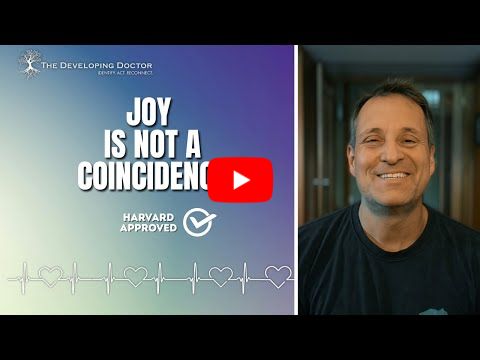Choosing When There's No Perfect Choice: Navigating Career Trade Offs
What big decision is keeping you up at night? You’ve weighed the pros and cons, run the numbers, and talked it through with your people. And still, there’s no obvious “right” answer.
As a clinician, you are trained to identify the best path forward for the patient in front of you, to make the correct diagnosis from the exam, to make an evidence-based choice supported by guidelines. Even when the diagnosis isn't clear, we use use a system to make and justify our decisions. We even use the same physician mindset to pivot and adjust when things don't go as planned.
But when it comes to our lives careers - that mindset doesn't work. For things like stepping into leadership, pursuing an educational role, moving to a new practice, or even leaving clinical medicine altogether — no peer-reviewed textbook tells you the answer. And that is when things get uncomfortable.
Medicine trains us to chase "right" and "wrong," but career decisions rarely fit into neat categories. Instead, they come with trade-offs like less pay for more flexibility, extra responsibility for greater influence, autonomy for stability.
The key isn’t finding the flawless path; it’s choosing the one that aligns with your priorities.
In any moment of decision, the best thing you can do is the right thing, the next best thing is the wrong thing, and the worst thing you can do is nothing.
— Theodore Roosevelt
Roosevelt is talking about analysis paralysis. Action, even imperfect action, often serves us better than endless questioning. Regret rarely comes from making an imperfect choice; it comes from staying stuck out of fear.
Coach's Corner
No decision is risk-free, as a clinician you know this well. Fear, however shouldn’t dictate your path. Ask yourself:
Am I running toward something meaningful, or away from fear?
Clarity comes when we focus on why.
This exercise will help you make value based, purposeful decisions.
- Write down the opportunity or decision you’re currently facing.
- List your top five personal or professional values (examples: autonomy, service, growth, financial stability, creativity, relationships, influence, learning).
- Score each value on a 1–5 scale for how well it would be honored by each option in front of you.
- Look for patterns: Which option scores highest for your most important values? Which choice feels like you’re honoring your future self, not just solving today’s discomfort?
- Ask: “If I chose this path, what would I be proud of five years from now?”
Your decision may not get easier — but it will start to feel clearer
Stuck in analysis paralysis? You don't have to figure it out alone. Here's how I can help:
- Need a framework? My self-paced course, How to Thrive As A Physician, walks you through decision-making step by step (and explores career options in detail.
- Want personalized guidance? Book a free coaching session here. I’ll help you weigh your options.
Your career and peace of mind are worth the investment in getting this right.
To a full life,
Ben
|
 |
| @the_developing_doctor on Tiktok The Developing Doctor |









Responses